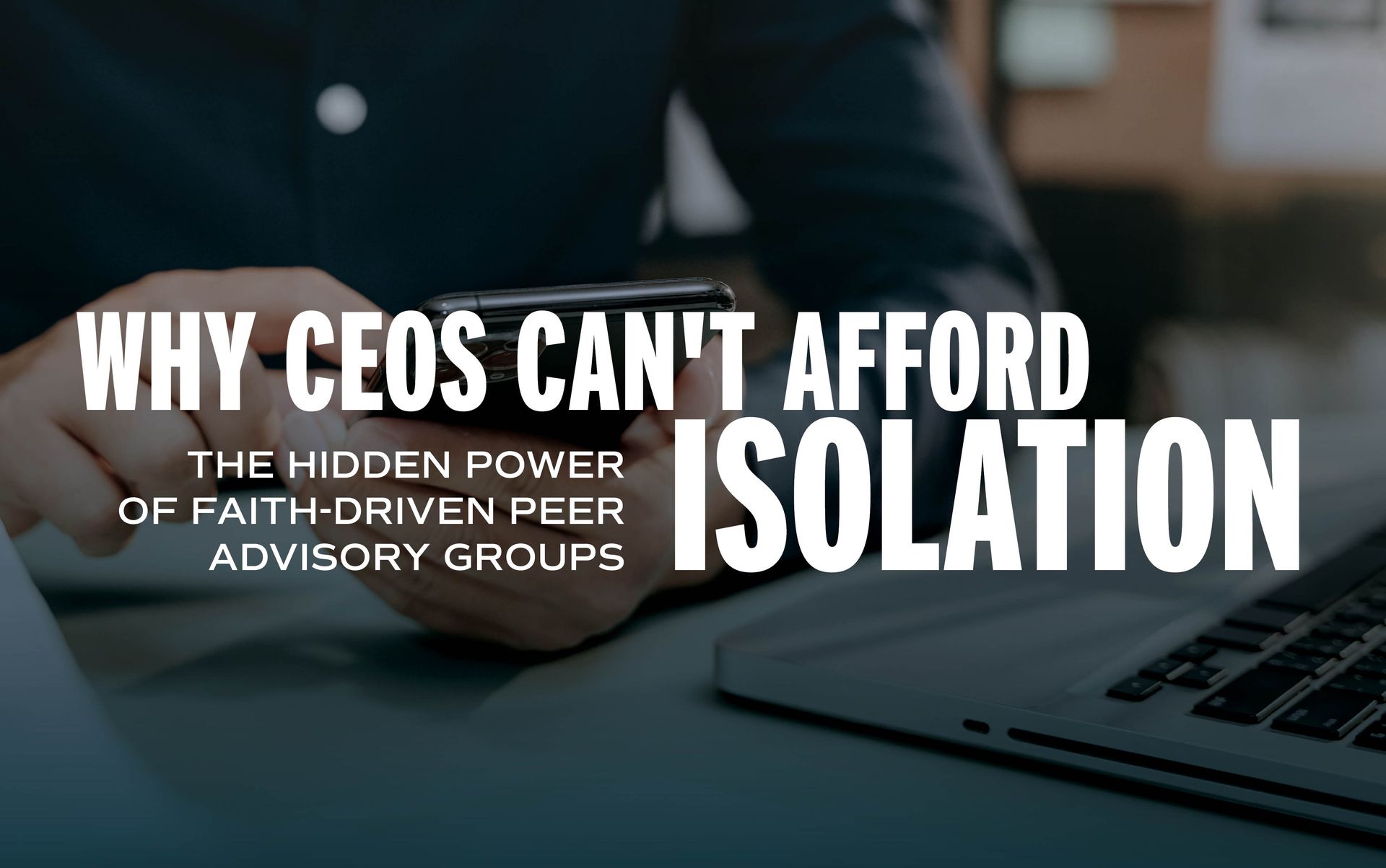Religious Liberties in the Workplace
Integrating Faith with Legal Stewardship
In an increasingly pluralistic society, the integration of faith in the workplace requires thoughtful navigation. Business leaders motivated by Christian values often seek to reflect their beliefs in their professional practices. However, doing so responsibly necessitates understanding both the opportunities and boundaries afforded by law. Drawing insights from the ADF 2024 Faith in the Workplace Guide and C12 research and insight, this article explores how to steward businesses as platforms for ministry while respecting religious liberties and maintaining a legally compliant environment.
The Foundations of Faith in the Workplace
Religious freedom is a cornerstone of American values, ensuring individuals and organizations can live out their beliefs without undue interference. The U.S. Constitution and federal laws like Title VII of the Civil Rights Act of 1964 protect these freedoms, allowing business owners to align operations with their religious convictions. Companies like Hobby Lobby and Chick-fil-A have demonstrated how to integrate faith-driven missions into their business ethos.
However, leaders must balance boldness with prudence. Recklessness in asserting faith can lead to legal disputes, while excessive fear of legal repercussions can stifle authentic expression. Navigating this "narrow path" involves informed decision-making, respect for diversity, and a commitment to honoring God through both faith and operational excellence.
Practical Applications of Faith in Business Operations
1. Creating a Faith-Aligned Business Culture
Christian business leaders can articulate their values through mission statements and operational policies. A robust "Statement of Faith and Purpose" serves as a foundation for expressing organizational identity while providing a legal framework for defense in potential disputes. This clarity allows both employees and stakeholders to understand the company's guiding principles.
2. Hosting Voluntary Faith-Based Activities
Workplace initiatives like prayer meetings, chaplaincy services, or faith-based employee care programs can enrich organizational culture. These must remain voluntary and inclusive, ensuring participation—or lack thereof—does not affect employment terms or workplace relationships. The Faith in the Workplace guide advises businesses to explicitly communicate the voluntary nature of such programs, preserving employees' rights while cultivating community.
3. Implementing Faith-Driven Hiring Practices
While aligning hiring practices with a faith-driven mission is possible, it must be handled with care. Businesses can emphasize cultural fit and shared values but should avoid appearing to discriminate based on religion unless the role's nature legally justifies it as a bona fide occupational qualification (BFOQ). For-profit businesses should exercise particular caution, as Title VII offers broader leeway to nonprofit religious organizations than to their for-profit counterparts.
4. Navigating Religious Accommodation
Employers are obligated to reasonably accommodate employees' religious practices unless doing so imposes undue hardship on business operations. Following the Supreme Court's clarification in Groff v. DeJoy, "undue hardship" now requires a demonstration of substantial burden, ensuring fairer treatment for employees seeking accommodations.
Balancing Faith and Legal Stewardship
Faithful leadership involves careful stewardship of both ministry opportunities and legal responsibilities. It is crucial that leaders are well trained to approach faith in the workplace with humility, wisdom, and respect for diverse perspectives. By maintaining transparency, promoting mutual respect, and equipping teams with legal knowledge, business leaders can confidently integrate faith without alienating employees or inviting unnecessary legal challenges.
The Broader Impact: Witness and Testimony
Christian business leaders have the privilege of witnessing through their enterprises, promoting human flourishing and advancing the Gospel in the marketplace. Organizations like Alliance Defending Freedom provide invaluable resources to help leaders navigate complex legal landscapes while remaining faithful to their convictions. Well-executed faith integration not only benefits businesses internally but also serves as a powerful testimony to clients, communities, and the broader culture.
Conclusion: The Narrow Path Forward
The integration of religious liberties in the workplace is both a challenge and an opportunity. By staying informed about legal protections, fostering inclusive practices, and boldly living out faith with humility, Christian leaders can steward their businesses as platforms for ministry.
Let this be a call to action for business leaders: explore resources like the Faith in the Workplace guide, join networks such as C12, and take steps to align your business with your faith—building great companies for a greater purpose.
Request a free copy of the Faith in the Workplace Guide from us, here.
Sources
- 2024 Faith in the Workplace Guide. Alliance Defending Freedom, 2024.
- Business and Ministry: The Narrow Path. C12 Mid-Atlantic Curriculum, 2023.
SHARE THE NEWS












